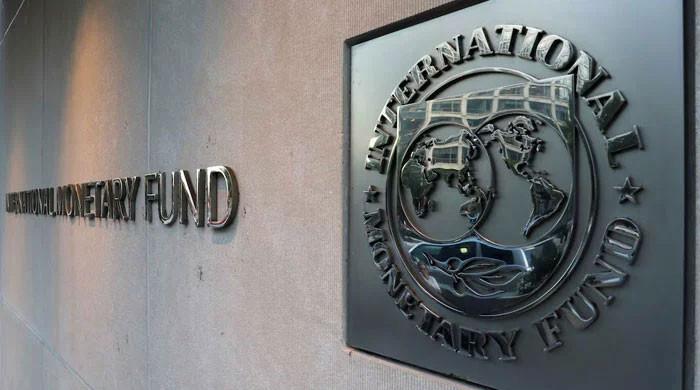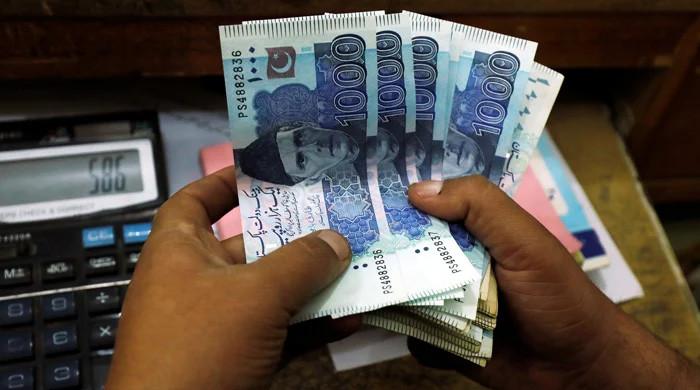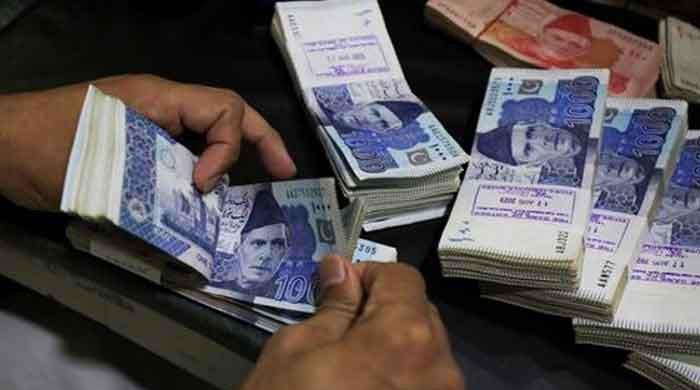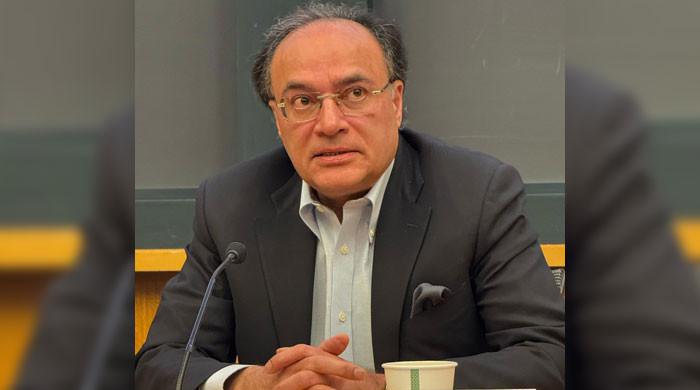Dollar gains further ground to near historic high against rupee
In interbank market, rupee falls to 239.71 after losing 0.03% against US dollar
September 22, 2022
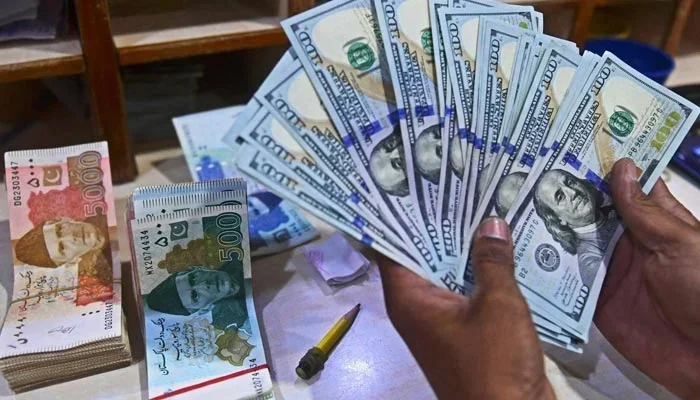
- Rupee registers losses for 15th consecutive session.
- Rupee falls to 239.71 after losing 0.03% in interbank market.
- Local unit is nearing historic low against dollar.
KARACHI: Registering losses for the 15th consecutive session, the Pakistani rupee lost further ground Thursday as the US dollar neared a historic high.
The rupee fell to 239.71 after losing 0.03%, down in value from the previous session's close of 239.65, in the interbank market..
The rupee now stands only Rs0.23 short of an all-time low level of Rs239.94 on July 28, 2022.
The rupee, which has been one of the worst performing currencies in the emerging markets, has depreciated by nearly 9% so far this month due to wide-ranging factors.
Analyst Yousuf Rahman at KASB Securities told The News that debt servicing was one of the reasons behind the rupee's decline as gross financing needs for the year are estimated at $32 billion.
Rahman also noted that floods have forced the government to import vegetables, grains, and cotton to replace damaged crops — increasing the pressure on the rupee.
“This has further added strain on the import bill and there have been news of consistent dollar outflows from grey channels, particularly through the Afghanistan border,” Rahman said.
He said the fundamentals and sentiments for the battered rupee won't improve until anticipated inflows from friendly countries happen.
“Once additional financing is received from the World Bank, ADB [Asian Development Bank], and allied countries, the rupee may stabilise around the 215 mark,” Rahman added.
The revival of the International Monetary Fund (IMF) bailout programme and the release of a $1.1 billion loan tranche from the Fund last month supported the rupee briefly in late August. However, the currency is again struggling.
"Dollar strength and high commodity prices are impacting regional and major currencies,” said Komal Mansoor, the head of research at Tresmark.
“[The] Indian rupee also traded above 80/dollar this week, and they have spent $90 billion to defend their already stable currency. Yuan, euro, and sterling have all depreciated to multi-year lows,” Mansoor said.
But the local currency hitting new lows is worrisome for the economy because it shows the government’s inability to stabilise forex reserves and reverse negative sentiment, he added.
“Some sort of a two-way direction is crucial for the currency”.





